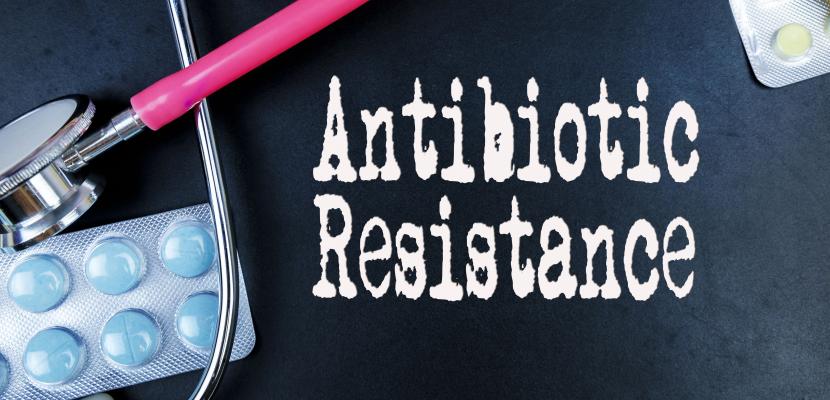
Bond University is set to step-up its fight against antibiotic resistance, after being awarded $2.49 million from the National Health and Medical Research Council (NHMRC) for an Australia-first project, aimed at curbing the global epidemic by focussing on antibiotic use in primary care.
The five-year grant - one of just 16 allocated nationwide this year - will allow Bond's Centre for Research in Evidence Based Practice (CREBP) to establish a new Centre for Research Excellence on Minimising Antibiotic Resistance in the Community (CRE-MARC), which will be staffed by a team of 20 researchers, fellows and PhD students.
This funding follows immediately on from a previous five-year $2.5 million grant awarded by the NHMRC in 2012 for an earlier Centre for Research Excellence on Minimising Antibiotic Resistance into Acute respiratory infections (CRE-MARA).
CRE-MARC will expand into residential aged care facilities, other infections in primary care - particularly skin and soft tissue, and urinary infections - and education of GPs in training.
It solidifies CREBP as one of Australia's leading authorities on the issue of antibiotic resistance, labelled by the World Health Organisation (WHO) as a key global health concern facing our generation.
Bond University’s Professor of Public Health, Chris Del Mar, will head the project, alongside his CREBP colleagues Professor Paul Glasziou, Professor Tammy Hoffman and Associate Professor Elaine Beller, in collaboration with other experts at the Princess Alexandra Hospital, Therapeutic Guidelines in Melbourne and The University of Queensland.
Professor Del Mar said the new funding would allow the research team to extend its study into new areas, including supporting GPs to implement strategies to address the problem of overuse.
"The current situation is we have a number of different approaches we know are effective at helping GPs safely reduce antibiotic use, such as delayed prescribing, shared decision making and 'nudge' techniques," he said.
“The problem is, GPs have to balance safety against antibiotic conservation to actually achieve reductions. The next phase of our study will concentrate on those issues – this is a research translation exercise.”
Professor Del Mar said the research would examine what role relevant bodies, including Primary Healthcare Networks, colleges and Government, had to play in helping doctors implement the necessary strategies to avoid the overuse of antibiotics.
He said the program of work was divided into separate streams, each of which would focus on attacking different elements of the problem.
"The research translation exercise is one of these, but we will also be looking at a range of other areas, including early training in GP education to entrench good habits early on," he said.
"In addition, we will be focusing on how to address skin and soft tissue and urinary infections, which along with acute respiratory infections, account for the greatest portion of current antibiotic use in primary care.
"Another stream will examine the use of antibiotics in residential aged care and nursing homes, yet another is undertaking systematic reviews on a range of questions, and we’ll be doing genetic work investigating how long it takes antibiotics to decay, a question we don't have good answers for yet."
The new Centre for Antibiotic Resistance in the Community will recruit four post-doctoral fellows and up to 10 PhD students to be part of the research team.
Bond University Deputy Vice Chancellor (Academic) Professor Keitha Dunstan said the prestigious NHMRC grant would further establish CREBP as an international leader in tackling the imminent global threat of antibiotic resistance.
"Our research team is already considered among the global authorities on this issue, and this latest grant will ensure their important work continues for another five years," she said.
"I congratulate the entire team on their achievements and have no doubt the work being done right here on the Gold Coast will continue to have a positive impact not just on the local community, but nationally and internationally."
CREBP's Professor Tammy Hoffmann has also been awarded a prestigious NHMRC Senior Research Fellowship to continue her research into the use of shared decision making to improve the appropriateness of healthcare for patients and the health system. Click here to read more.

